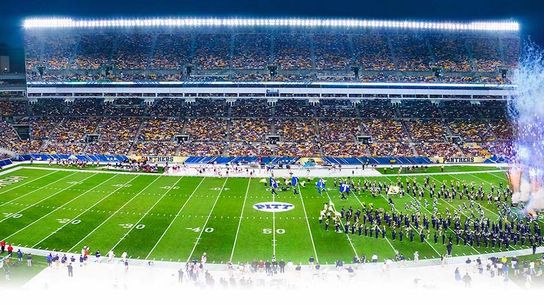The NCAA issued a third set of recommendations Thursday through its sports science institute that extended previous guidelines and provided updates regarding the safety of student-athletes and prevention of spreading COVID-19 in hopes of a return to sport.
It also came with an admission from NCAA president Mark Emmert that the spread of the virus is trending in the wrong direction.
"When we made the extremely difficult decision to cancel last spring's championships, it was because there was simply no way to conduct them safely," Emmert said in a statement on the NCAA's website. "This. document lays out the advice of health care professionals as to how to resume college sports if we can achieve an environment where COVID-19 rates are manageable. Today, sadly, the data point in the wrong direction. If there is to be college sports in the fall, we need to get a much better handle on the pandemic."
NCAA issues next set of return-to-sport guidelines: https://t.co/fmXBdjPRhO
The third installment of recommendations outlines daily self-health checks, testing within 72 hours of competition for high contact risk sports. pic.twitter.com/HsNlH52Chk
— NCAA (@NCAA) July 16, 2020
Emmert's statement in stark contrast with the approach adopted last week by the NCAA, when the governing institution basically told conferences and school to call its own shots.
NCAA statement on membership decisions related to COVID-19: pic.twitter.com/GvmkOJIYjE
— Inside the NCAA (@InsidetheNCAA) July 10, 2020
Because many sports require contact in confined spaces, the guidelines are designed to inform schools about appropriate responses to specific circumstances.
The recommendations include:
• Daily self-health checks;
• Proper use of face coverings and social distancing during training, competition and when outside of athletics;
• Testing strategies for athletic activities, including preseason, regular season and postseason;
• Testing and results within 72 hours of competition in high-contact risk sports (i.e. football);
• Adhering to public health standards set by local communities.
"Any recommendation on a pathway toward a safe return to sport will depend on the national trajectory of COVID-19 spread," NCAA chief medical office Brian Hainline said in the NCAA's statement. "The idea of sport resocialization is predicated on a scenario of reduced or flattened infection rates."
Testing might be a major part of the most recent guidelines, but it remains up to individual schools to provide the testing and that anyone -- or even an entire team -- with a high risk of exposure should be quarantines for 14 days.
Guidelines for travel suggest, when possible, "to travel and play the same day to avoid overnight stays." If overnight stays are necessary, which is commonplace in college football, prepackaged meals or room service should be considered and wearing masks while maintaining social distancing should be practiced.
The NCAA also set guidelines to assist campuses in determining when proceeding with sports no longer is safe:
• Lack of ability to isolate new positive cases or quarantine high-contact risk cases on campus;
• Inability to perform symptomatic, surveillance and pre-competition testing when necessary;
• Test rates considered unsafe by local public health officials;
• Inability to perform appropriate contact tracing;
• A hospital infrastructure unable to accommodate a surge in cases.

